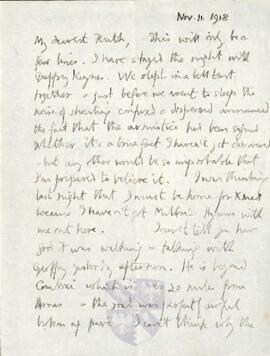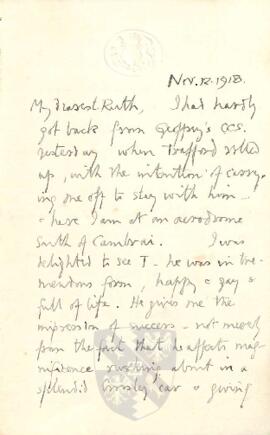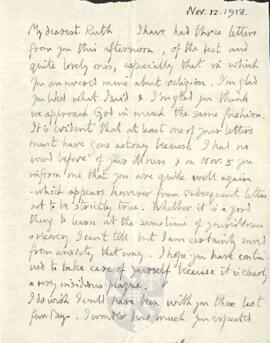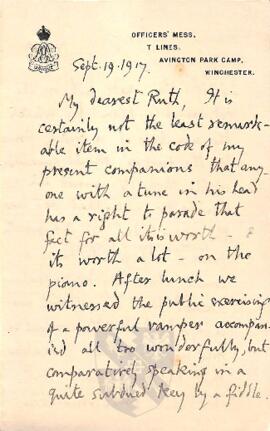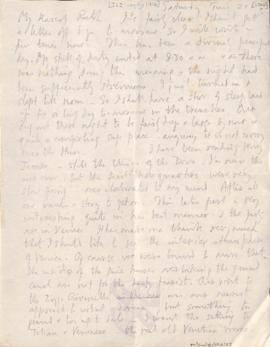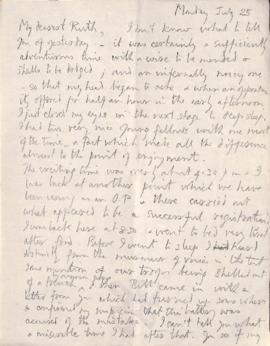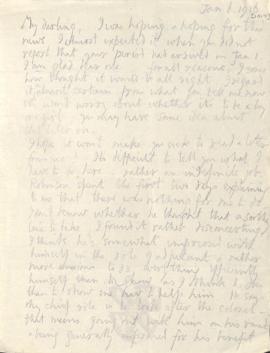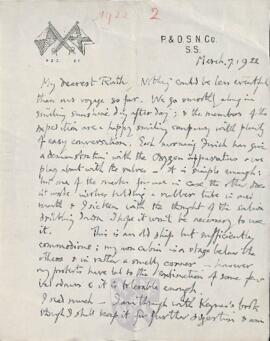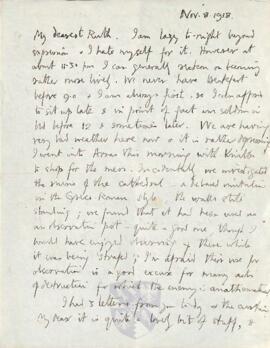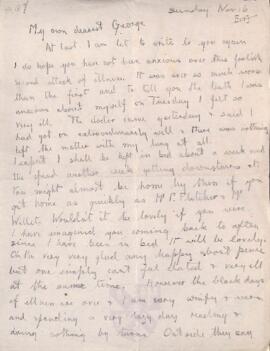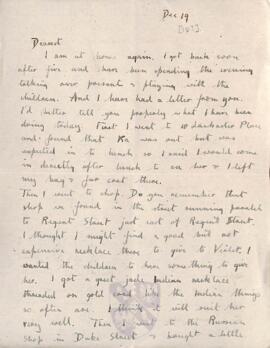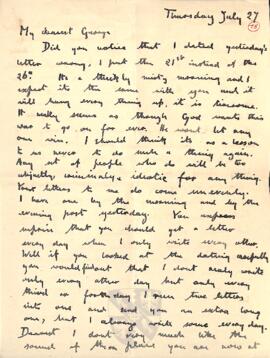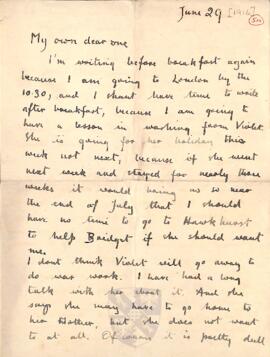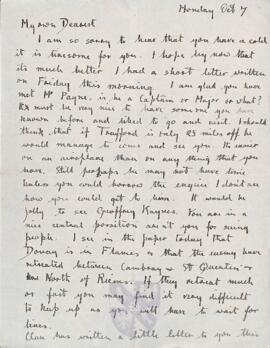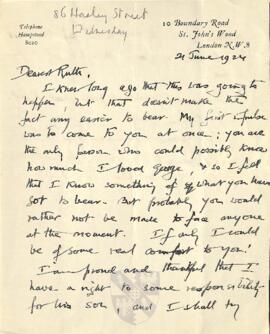Letter to Ruth Mallory written from France
Had received three lovely letters from her including one in which she talks about their views on religion. One of letters must have gone astray as he found out she had recovered before he knew that she was ill.
He hadn’t been surprised by the armistice once he had heard the result of the Versailles conference. Hoped there wouldn’t be anarchy in Germany. There was no indication of it merely a bloodless revolution they could heartily welcome. Any attempt at a coup by the wealthy would be disastrous but he didn’t think it was much to be feared. The end of the war, so far, had been perfect.
The Daily Mail was still talking about peace traps and political camouflage. Was this amazing blindness or wilful folly? Had she seen Carson’s speech about Lord Northcliffe? It pleased him very much.
Was surprised and delighted to hear her father was progressing so well and he might be walking again soon.
Was interested to hear about Clutton Brock’s book. If he might send him a copy then she should wait before buying one.
He had received The Alpine Journal, three pamphlets from the Civic Arts Association and a New Europe. The A.C. looked dull, except his article.
She asked if it was too early to start teaching Clare about God. He thought it was but didn’t know when they should start.
When he had met Geoffrey they had talked and talked. Geoffrey had been in close contact with Cosmo Gordon for the past 2 years. They had met when Gordon had been in the operating theatre near to Geoffrey’s location and had asked to se him.
